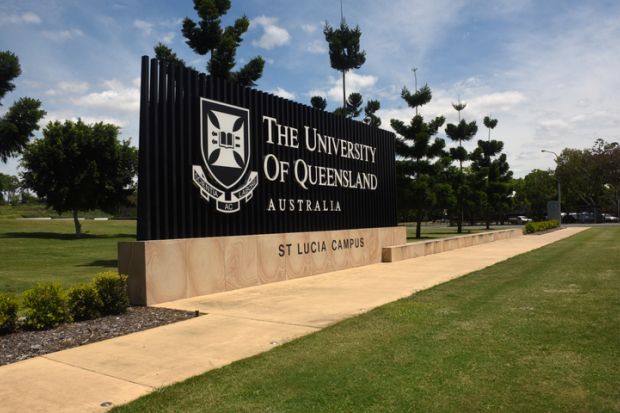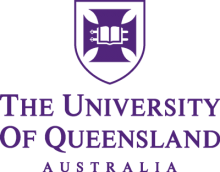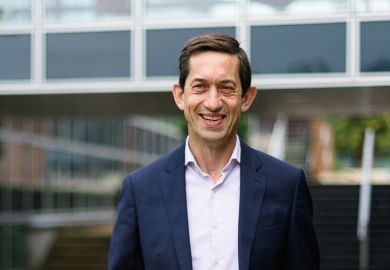Disciplinary proceedings against a University of Queensland (UQ) philosophy student will be reviewed by the institution’s governing body, amid claims that he is being targeted over his anti-China activism.
Drew Pavlou, the undergraduate-elected member of UQ’s senate, has been suspended for two years after the university took action over misbehaviour reportedly outlined in a 186-page dossier of complaint containing 11 allegations of misconduct.
Mr Pavlou had walked out of a 27 May disciplinary hearing, refusing to participate in a “kangaroo court” convened to deliver a “rigged decision”. In a statement issued after the suspension was ordered on 29 May, Mr Pavlou said the university had provided no reasons and “threatened consequences if I breached the confidentiality of their decision”, which he vowed to appeal to the Supreme Court.
“Today UQ and the misconduct board have taken the vindictive but not unexpected decision to expel me for two years – the same length of time as my senate seat,” he said. “This is a clear attempt to silence me…and nullify my senate term and the democratic process that put me there. All these proceedings are an attempt to protect dirty UQ-CCP [Chinese Communist Party] business interests.”
He told the ABC that the disciplinary process had been an “investigation in search of a crime”, and promised not to accept “smoky back room” deals to “just stop talking about China. F**k that, no way. I want a total complete exoneration. I want the university to publicly apologise to me. I want to take it to the Supreme Court so we can absolutely tear them to shreds, because it’s a politically motivated farce. Any independent judge will see this.”
UQ had dismissed such suggestions in a statement issued a week earlier: “The university’s policies are not driven by politics and we completely reject the claims that this ongoing disciplinary matter is a free speech issue.
“It is entirely reasonable and appropriate for the university to provide a safe environment for students and staff, both on campus and online, to protect their welfare and mental health.”
It said details including the dossier had been kept confidential in line with “standard” processes. “Eroding or undermining these processes reduces the likelihood that students and others will feel safe to report behaviour which they feel is inappropriate or unacceptable.”
But shortly after the decision was handed down, UQ chancellor Peter Varghese issued a statement saying he was “personally” concerned by the findings and penalty.
“In consultation with the vice-chancellor, who has played no role in this disciplinary process, I have decided to convene an out-of-session meeting of UQ’s senate next week to discuss the matter,” he said.
Mr Pavlou came to prominence after he organised a rowdy campus protest in support of Hong Kong democracy in July last year. Some observers said the protesters had been violently attacked by nationalistic Chinese students, while others said the scuffles had been relatively minor and mutually instigated.
Mr Pavlou, who also campaigns on behalf of Uighurs and Tibetans, subsequently launched an online petition seeking the dismissal of vice-chancellor Peter Høj.
He was later elected to the senate on a platform of closing down UQ’s Confucius Institute and severing any formal relationship with China.
Mr Pavlou’s suspension has attracted global headlines. China’s Global Times newspaper, regarded as a CCP mouthpiece, reported that both Chinese and Australian students at UQ supported Mr Pavlou’s suspension.
In a 31 May article it quoted unnamed students decrying his “offensive comments on social media” and saying he had “often delivered hate speech and used Facebook to smear Chinese students”.
The New York Times reported that Mr Pavlou had “grabbed headlines by goading university officials into making him an enemy rather than just a provocateur”, while an op-ed in national broadsheet The Australian – which has given the issue relentless coverage – accused UQ of putting profits before free speech.
“An Australian university that suspends a student for protesting against CCP influence is neither Australian nor a university,” it said.
A 4,500 word profile in The Weekend Australian Magazine, entitled “The boy who kicked the hornet’s nest”, portrays him as an “unassuming” accidental campaign figurehead. “How did the mild-mannered eldest son of a conservative Greek greengrocer manage to attract the world’s attention for a campus protest, garner countless death threats against himself and his family, spark a closed UQ disciplinary hearing, and threaten to bring what was building as a stellar academic career to its knees?”
In a characteristically provocative stunt, Mr Pavlou filmed himself attempting to deliver a copy of the article to Professor Høj’s locked office. “Why won’t he accept my kind gesture?” Mr Pavlou tweeted.
Register to continue
Why register?
- Registration is free and only takes a moment
- Once registered, you can read 3 articles a month
- Sign up for our newsletter
Subscribe
Or subscribe for unlimited access to:
- Unlimited access to news, views, insights & reviews
- Digital editions
- Digital access to THE’s university and college rankings analysis
Already registered or a current subscriber? Login












